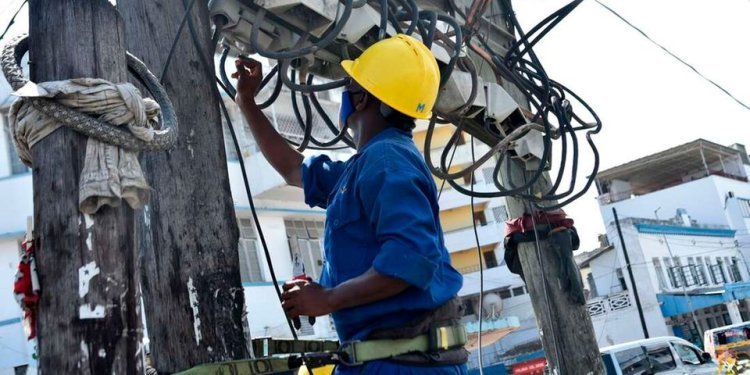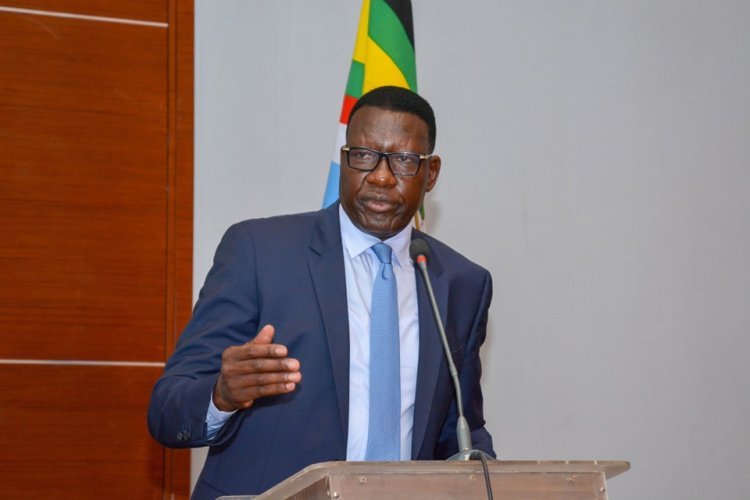Can An Overload Cause A Nationwide Blackout, According to CS Chirchir?
Specifically, the transmission line which is designed to carry 80 megawatts was under pressure from 149 megawatts which resulted in an overload causing the blackout.


Energy and Petroleum Cabinet Secretary (CS) Davis Chirchir stated on Monday, December 11 that a transmission overload along the Kisumu-Muhoroni line in the western part of Kenya contributed to Sunday's nationwide blackout that plunged millions of homes into darkness.
Speaking to the media, the CS termed it a shame the latest power blackout which occurred twice in one night, bringing to four the total number of power blackouts Kenya has witnessed this year alone.
Specifically, the transmission line which is designed to carry 80 megawatts was under pressure from 149 megawatts which resulted in an overload causing the blackout.
“As a country, we are ashamed of the power blackout problem that happened yesterday. It was caused by an overload that was witnessed along the Kisumu -Muhuroni line which only carries 80 megawatts. Yesterday the line was carrying 149 Megawatts,” he said.

But does an overload lead to a power blackout and moreso, a nationwide blackout? Viral Tea explains below:
An overload in an electrical system can potentially cause a power blackout. It occurs when the demand for electrical current in a circuit exceeds its capacity.
This can happen if too many devices are connected to a single circuit or if there is a malfunction in the electrical system.
When an overload occurs, the electrical components, such as wires and transformers, may overheat. In extreme cases, this can lead to damage or failure of the equipment and, in turn, may cause a power outage.
To prevent such overloads and potential blackouts, electrical systems are designed with safety features such as circuit breakers or fuses.
These devices are meant to interrupt the flow of electricity when an overload is detected, protecting the system from damage and reducing the risk of a blackout.
While overloads in specific localized areas can lead to power outages, nationwide blackouts are typically caused by more complex and widespread issues, meaning CS Chirchir's sentiments on what caused the recent nationwide blackout may be inaccurate.
Overloads in individual circuits or regions can be isolated and managed by local protective devices, such as circuit breakers, to prevent damage and limit the impact on the broader electrical grid.

However, nationwide blackouts are often the result of larger and more systemic problems, such as:
Major Equipment Failures: Failures in critical components of the power grid, such as large transformers or transmission lines, can have cascading effects and lead to widespread outages.
Natural Disasters: Severe weather events, earthquakes, hurricanes, or other natural disasters can damage infrastructure, causing extensive and simultaneous failures across the grid.
Cyberattacks: Sophisticated cyberattacks targeting the control systems of power grids can disrupt operations and lead to large-scale outages.
Fuel Supply Disruptions: In some cases, power generation relies on specific fuel sources (like natural gas, coal, or nuclear fuel). Disruptions in the supply chain for these fuels can impact power generation and lead to widespread outages.
While individual overloads may contribute to localized outages, a nationwide blackout typically involves a combination of factors that affect the overall stability and functionality of the power grid on a much larger scale.
Grid operators and utilities employ various measures and redundancies to minimize the risk of widespread blackouts and to quickly restore power in the event of an outage.
admin Oct 26, 2023 0
admin Mar 27, 2023 0
admin Apr 27, 2023 0
This site uses cookies. By continuing to browse the site you are agreeing to our use of cookies.